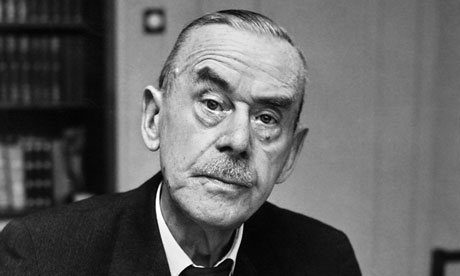Image from Gerald Brimacombe Photography
If Levar Burton has taught me anything, it's that when I pick up a book, "I can go anywhere." If you're an intrepid mental traveler like me, you'll enjoy trotting across the globe with our See The World series. We kick things off in one of the most beautiful locations on the globe: Venice, Italy. Here are some excerpts from three great books that will take you there:
Death in Venice, by Thomas Mann
“And so he saw it once again. The most amazing of landing places, the dazzling composition of fantastic architecture that the Republic presented to the worshipful gazes of approaching mariners. The airy magnificence of the Doge’s Palace and the Bridge of Sighs, the columns depicting lions and saints on the shore, the splendid and projected flank of the fairy tale temple, the view of the gateway and the gigantic clock. And while contemplating this scene, he mused that arriving by the Venice railroad station by land, was like entering a palace through a back door, and that one could only do as he had done, sail across the high seas in order to reach the most improbable of cities.”
The Aspern Papers, by Henry James
"The gondola stopped, the old palace was there; it was a house of the class which in Venice carries even in extreme dilapidation the dignified name. “How charming! It’s grey and pink!” my companion exclaimed; and that is the most comprehensive description of it. It was not particularly old, only two or three centuries; and it had an air not so much of decay as of quiet discouragement, as if it had rather missed its career. But its wide front, with a stone balcony from end to end of the piano nobile, or most important floor, was architectural enough, with the aid of various pilasters and arches; and the stucco with which in the intervals it had long ago been endued was rosy in the April afternoon. It overlooked a clean melancholy rather lonely canal, which had a narrow riva or convenient footway on either side."
"…I spent the late hours either on the water- the moonlights of Venice are famous- or in the splendid square which serves as a vast forecourt to the strange old church of Saint Mark. I sat in from of Florian’s café eating ices, listening to music, talking with acquaintances: the traveler will remember how the immense cluster of tables and little chairs stretches like a promontory into the smooth lake of the Piazza. The whole place, of a summer’s evening, under the stars and with all the lamps, all the voices and light footsteps on marble- the only sounds of the immense arcade that encloses it- is an open-air saloon dedicated to cooling drinks and to a still finer degustation, that of the splendid impressions received during the day."
Across the River and Into the Trees, by Ernest Hemingway
"He penetrated into the far side of the city, the side that finally fronted the Adriatic, and that he liked the best. He was going in by a very narrow street, and he was going to not keep track of the number of more or less north and south streets that he crossed, nor count the bridges, and then try and orient himself so he would come out at the market without getting up any dead ends.
"It was a game you play, as some people used to play double Canfield or any solitary card games. But it had the advantage of you moving while you do it and that you look at the houses, the minor vistas, the shops and the trattorias and at old palaces of the city of Venice while you are walking. If you loved the city of Venice it was an excellent game.
"It is a sort of solitaire ambulante and what you win is the happiness of your eye and heart. If you made the market, on this side of town, without ever being stymied, you won the game. But you must not make it too easy and you must not count."
Which other books bring the City of Canals to life for readers?






